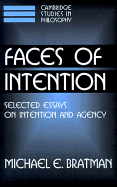Book contents
9 - Responsibility and Planning
Published online by Cambridge University Press: 18 December 2009
Summary
We see ourselves as both responsible agents and planning agents. How are these two kinds of agency related?
Begin with planning agency. We frequently settle in advance on prior, partial plans for future action. We then proceed to fill in these plans in a timely manner, and to execute them when the time comes. Such planning plays an important organizing role in our lives, both individual and social. It helps us organize our own activities over time, and it helps us organize our own activities with the activities of others.
We typically see present actions as elements in planned activities that extend over time. Frequently, it is only when seen in this light that our present activities make the right kind of sense to us. You will not understand why I am now typing this sentence unless you see this action as embedded in a larger planned activity, one that includes elements both past and (I hope!) future.
We also see many of our actions as shaped by intentions and plans that are in an important sense shared. When you and I are talking with each other our activity is normally seen by each of us as embedded in a shared activity of having a conversation, or trying to solve a problem, or trying to arrange a lunch meeting, or. … There is a sense in which we intend this shared activity – a sense in which we have a shared intention that structures our planning and action.
- Type
- Chapter
- Information
- Faces of IntentionSelected Essays on Intention and Agency, pp. 165 - 184Publisher: Cambridge University PressPrint publication year: 1999



